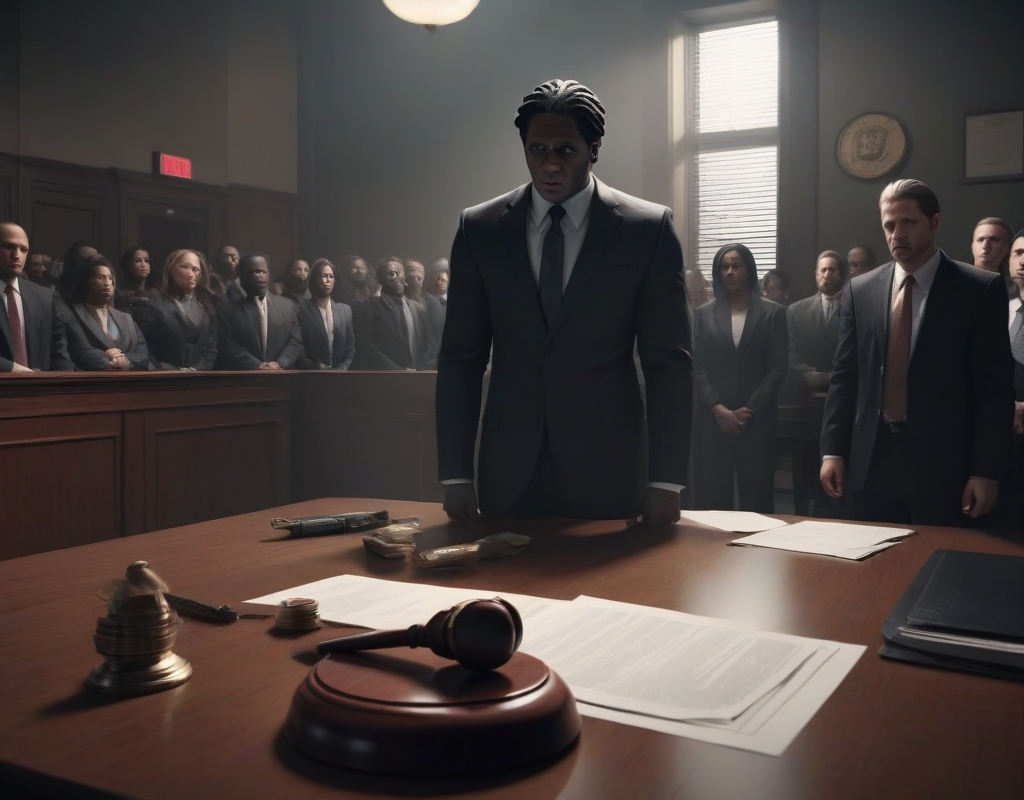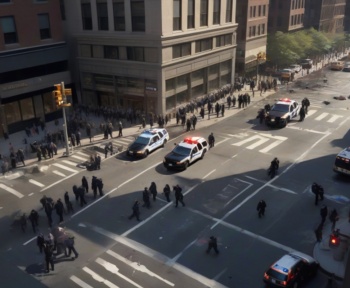In a dramatic escalation that combines the worlds of hip-hop music and criminal justice, rapper Lil Durk, legally known as Durk Derrick Banks, has been indicted as the alleged mastermind of a murder-for-hire plot against fellow artist Quando Rondo. This development marks a significant moment in what is increasingly seen as a tragic intertwining of personal conflict and public persona among celebrities in the music industry. The federal indictment raises serious questions about the extent of criminal activities among high-profile artists, serving as a lens to examine the often-dark intersection of celebrity and crime.
### Unpacking the Federal Indictment
The charges laid against Lil Durk are grave, situating him at the heart of a conspiracy to commit murder, allegedly in retaliation for a past personal grievance. Federal authorities, after an elaborate investigation, have indicted Durk along with five co-defendants associated with the Only The Family (OTF) gang. These charges stem from an August 2022 incident where Saviay’a Robinson was fatally shot, believed to be executed as part of this broader plot. This indictment pinpoints Lil Durk not just as a participant but the orchestrator behind these schemes, claiming a significant escalation in his alleged criminal involvement.
### Historical Background of the Feud
The motivation behind this alleged murder-for-hire plot seems rooted deep in the hip-hop community’s tragic narratives. It traces back to the November 2020 killing of rapper King Von, a close associate of Lil Durk, during a confrontation involving Quando Rondo’s entourage outside an Atlanta nightclub. This incident symbolized the deadly potential of rivalries within the hip-hop scene and set the stage for what federal authorities believe was Durk’s quest for revenge.
### Evidence Trail and Legal Strategy
Crucially, telecommunications data and video surveillance play a central role in the prosecution’s case against Lil Durk. Investigators have detailed the use of encrypted messages and financial transactions allegedly conducted by Durk in attempts to disguise his involvement and coordinate the plot. A close examination of these digital footprints is expected to be a cornerstone of the coming legal battles, painting a complex picture of premeditation and alleged criminal intent.
### Daylight Ambush and Consequences
The purported plot culminated in a public and violent act: a daylight attack targeting Quando Rondo at a Los Angeles gas station, with surveillance capturing the discharge of multiple gunshots. This brazen act, coupled with Lil Durk’s subsequent arrest in Miami as he reportedly prepared for international travel, illustrates the seriousness with which law enforcement is treating the case. Durk’s alleged attempt to flee to Italy highlights the dramatic nature of this case and the lengths authorities are willing to go to ensure accountability.
### Reputational Fallout and Public Reception
The revelations have prompted an immediate reassessment of Lil Durk’s public image. The revocation of Durk’s honorary key to the city of Chicago illustrates a swift symbolic denouncement and showcases the broader societal backlash against his alleged actions. Public reactions have varied widely, with some of Durk’s fans expressing support and others grappling with the ethical implications of celebrating artists entangled in serious criminal allegations.
### Broader Impacts on the Music Industry
This case does not exist in isolation but is reflective of a longstanding issue within the hip-hop community, where personal anguish and systemic violence often influence musical expression. Industry observers stress the need for interventions that can help artists navigate fame without resorting to violence, suggesting that providing better support systems could prevent such outcomes.
As Lil Durk faces these allegations, the hip-hop industry finds itself at an inflection point, prompting introspection about its cultural and ethical responsibilities. The unfolding legal proceedings promise to not only decide the fate of an individual but also challenge the industry to confront and ideally dismantle the destructive cycles that have marred its community.
This high-stakes legal ordeal places Lil Durk at a crucial crossroads, one that could redefine his career and legacy while also influencing broader cultural discourse on criminal justice, celebrity culture, and redemption within and beyond hip-hop. As the case progresses, it will undoubtedly serve as a significant case study in how the music industry, its fans, and society handle the complex interplay of fame, personal conduct, and public accountability.




